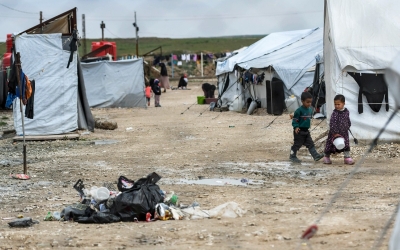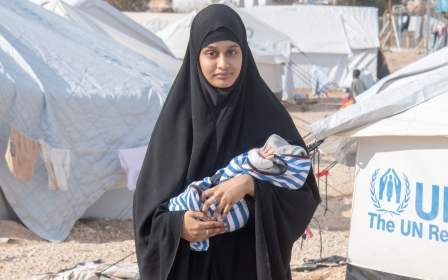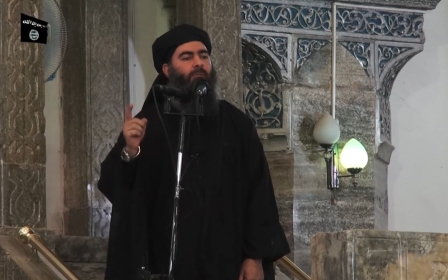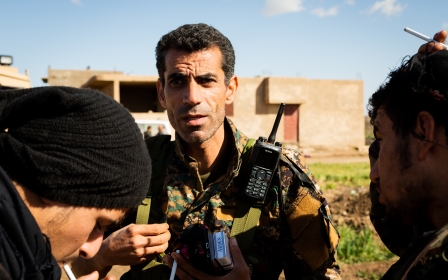Kosovo repatriates Islamic State fighters and families who had travelled to Syria
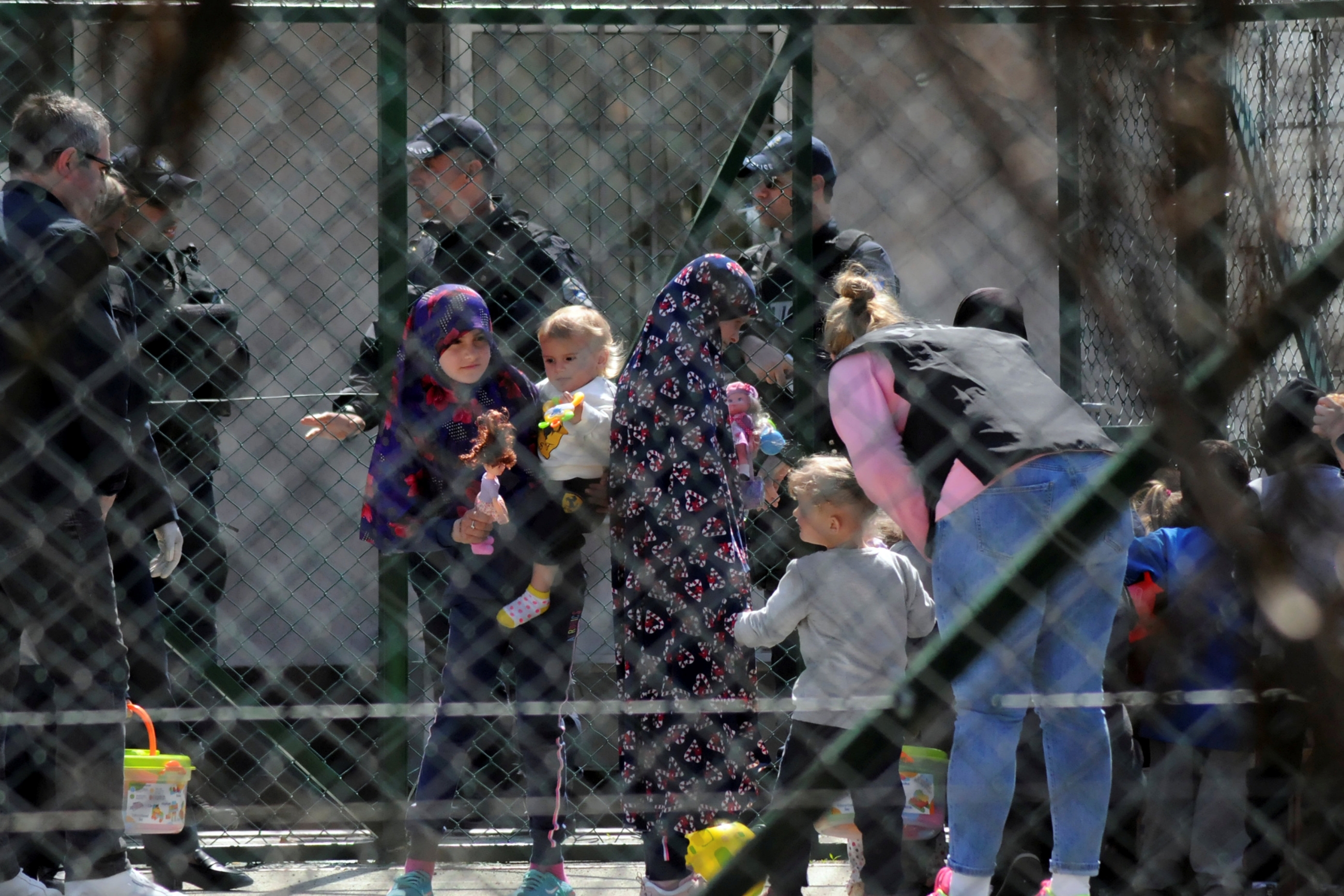
Kosovo has flown back dozens of Kosovan children, women, and men who had gone to join the Islamic State group in Syria, according to government officials.
The 110 returnees who were airlifted back to Kosovo on Saturday, included 74 children, 32 women, and four men suspected of fighting for IS, Justice Minister Abelard Tahiri said.
The four fighters were immediately arrested and the state prosecutor said indictments against them will soon follow.
'We will not stop before bringing every citizen of the Republic of Kosovo back to their country'
- Kosovan Justice Minister Abelard Tahiri
"We will not stop before bringing every citizen of the Republic of Kosovo back to their country and anyone that has committed any crime or was part of these terrorist organisations will face the justice," he said.
"As a government of the Republic of Kosovo, we cannot allow for our citizens to be a threat to the West and to our allies."
New MEE newsletter: Jerusalem Dispatch
Sign up to get the latest insights and analysis on Israel-Palestine, alongside Turkey Unpacked and other MEE newsletters
This latest batch of returnees come as several European countries, including Britain, have resisted calls to repatriate its citizens who joined the militant group.
Tahiri said the US had helped with the "important and sensitive operation", but did not specify on what role the country had played. A plane with a US flag on its tail was seen in Pristina Airport as the operation was ongoing, Reuters reported.
When asked about the return of fighters to Kosovo and the separate return of a fighter to Bosnia, US military spokesman Sean Robertson told Reuters that US assets had been used in the operation, but also did not elaborate.
Two busloads of women and children were transported under police escort to an army barracks just outside Pristina.
Countries refusing to repatriate
Following the collapse of IS in northern Syria and Iraq, several countries have debated whether to bring back its citizens.
The Kurdish-led Syrian Democratic Forces (SDF) have said the Al-Hawl refugee camp in northern Syria, where many IS members fled to, houses refugees from over 43 countries.
Other countries which have already begun the repatriation process of IS members include Malaysia and Morocco, who have worked with Kurdish officials to repatriate its citizens.
Russia has agreed to repatriate Russian children from Iraq, while Belgium and France have said that they would accept children depending on their age.
In February, UK Home Secretary Sajid Javid said it would be "incredibly difficult" to bring back British children from refugee camps in northern Syria, instead saying they should be repatriated from third countries.
However, as MEE reported, UK government officials confirmed earlier this month that the UK had allowed a "small number" of British children who were living in Syria back into the UK over the past 12 months, but did not elaborate from where in Syria they came.
Earlier this month, Iraq said it would try and fine all the foreign fighters in SDF detention for $2m in damages each, according to AFP.
France has warmed to the idea of trying French foreign fighters by local authorities in Iraq, but rights groups have condemned the move, as Baghdad still administers the death penalty.
Middle East Eye delivers independent and unrivalled coverage and analysis of the Middle East, North Africa and beyond. To learn more about republishing this content and the associated fees, please fill out this form. More about MEE can be found here.


